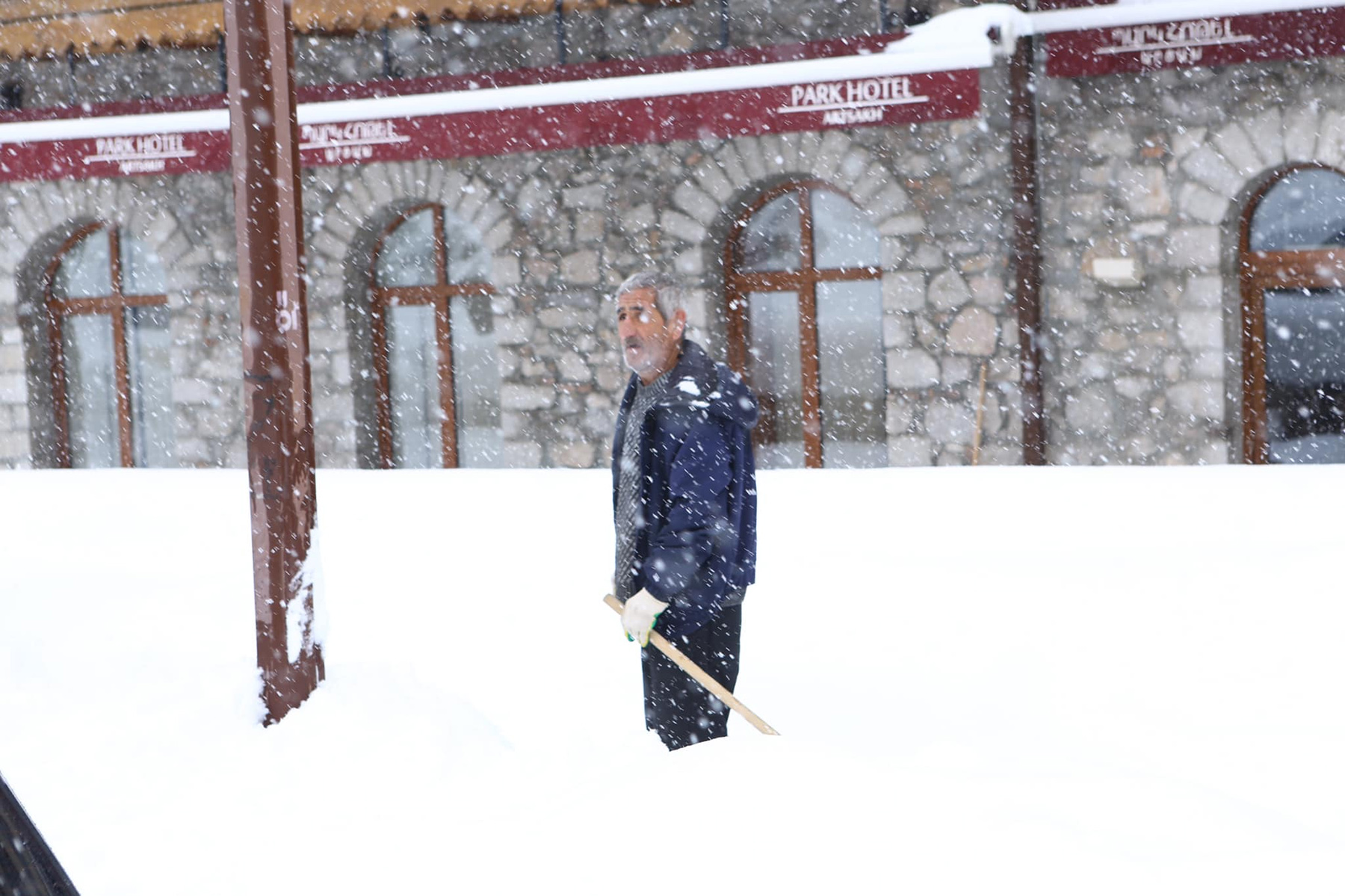
For the second time in two weeks, over 100,000 residents of Nagorno-Karabakh have been left without heating in sub-zero temperatures because of a gas pipeline running through Azerbaijan-controlled territory.
‘We use an electric heater and a wood-burning stove in the apartment because the electricity, too, is unstable to rely on the heaters only’, Zvart Shirinyan, a resident of Stepanakert (Khankandi), told OC Media. ‘They’re cutting the power for at least thirty minutes every day in every district. Everyone is using electric heaters.’
When the pipeline supplying gas to Nagorno-Karabakh was damaged on 8 March, many bakeries were unable to operate for up to 10 days, causing an acute shortage of bread.
‘There were only a few bakeries working without gas, but those were not enough to provide the whole city with bread’, Zvart told OC Media. ‘It was almost impossible to find bread in Stepanakert in the second half of the day.’
The previous time the gas was shut off, it was apparently because of damage the pipeline sustained in a section that was located in Azerbaijan-controlled territory near the city of Shusha (Shushi). The Azerbaijani authorities never explained the cause of the damage, leaving the Nagorno-Karabakh authorities to speculate it might be sabotage.
Azerbaijan repaired the pipeline on 18 March following negotiations with Russian peacekeeping forces stationed in Nagorno-Karabakh.
[Read more: Nagorno-Karabakh left in the cold]
On Saturday evening, following this most recent gas shut off, officials in Stepanakert claimed that, while repairing the pipeline, Azerbaijan has installed a valve that allowed them to close the flow of gas — Nagorno Karabakh’s Foreign Ministry denounced the alleged act as ‘humanitarian terrorism’.
The Russian peacekeeping contingent has started new a round of negotiations concerning the pipeline with Azerbaijan on Tuesday morning.
As of publication, no updates on the results of the negotiations were reported.

The weather in Nagorno-Karabakh, too, has taken a turn for the worse. In addition to frigid temperatures, Stepanakert and a number of other settlements have been blanketed in up to one metre of snow.
While no official comment has come from Armenian officials in Yerevan, officials in Stepanakert report that the Armenian government is taking part in negotiations in getting the gas flowing again.
Problems with the supply of gas have been only one of a number of recent security problems afflicting the disputed region. As recent weeks have seen an uptick of violence on the line of contact. The violence included the shelling of several Armenian-inhabited villages by the Azerbaijani military, which led to the temporary evacuation of residents of the village of Khramort (Pirlar). One village resident also apparently sustained a shrapnel wound.
[Read more: Violence sparks fear of new war among Nagorno-Karabakh residents]
For ease of reading, we choose not to use qualifiers such as ‘de facto’, ‘unrecognised’, or ‘partially recognised’ when discussing institutions or political positions within Abkhazia, Nagorno-Karabakh, and South Ossetia. This does not imply a position on their status.








